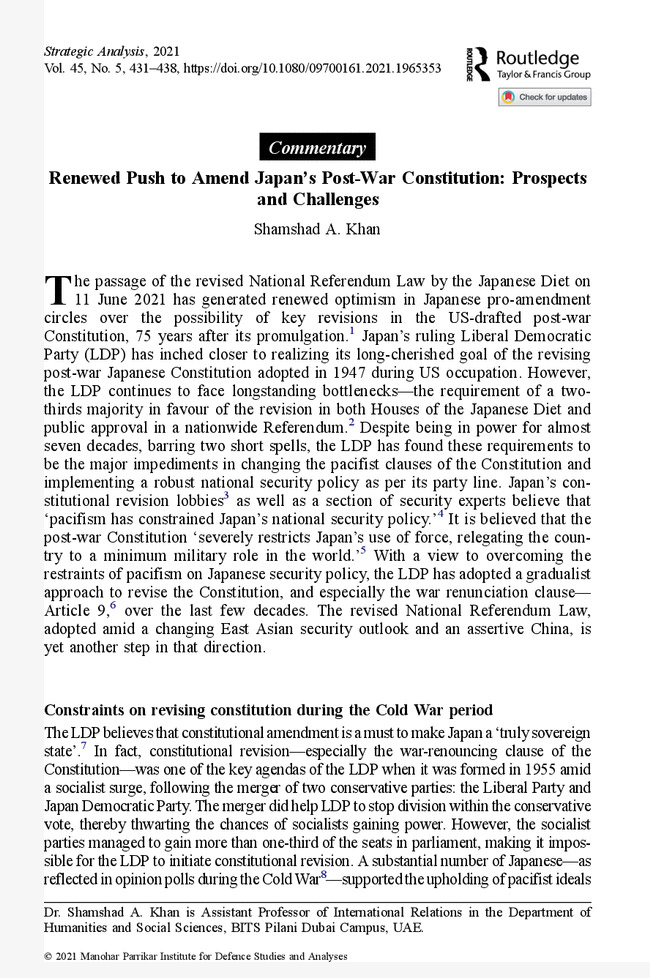Renewed Push to Amend Japan’s Post-War Constitution: Prospects and Challenges

- Published: September 2021

The new nuclear regulation calls for installing additional safety measures and imposes strict conditions for re-starting nuclear reactors to avoid the recurrence of Fukushima like nuclear meltdown.
Japan and Russia have enlarged their political and economic cooperation during the recently held talks. This gives hope of a resolution to their lingering territorial disputes which have overshadowed their overall bilateral relations.
Although Shinzo Abe is aggressively pushing for revising the Constitution, the LDP’s ally, New Komeito, remains opposed to the idea arguing that it will change the nature and duties of Japan’s defence force.
Japan’s nationalisation of Senkaku Island has given China a chance to reassert its territorial claims, which has resulted in widespread anti-Japan protests as well as a diplomatic spat between Beijing and Tokyo.
Irritants like the Dokdo/Takeshima issue, if allowed to linger further, will affect Japan-South Korea relations including the security cooperation they have envisaged given common regional security concerns.
Japan’s amendment of its atomic energy law with the inclusion of a “national security” clause is being viewed within the country as a ploy to pave the way for the acquisition of nuclear weapons.
While the Japanese government is facing pressure from the Tokyo Metropolitan government, Ishigaki municipal assembly and the main opposition LDP to nationalise the Senkaku Islands, a section of Japanese people have been asking it not to provoke China.
The massive earthquake and tsunami which triggered the Fukushima nuclear crisis on March 11, 2011 has shattered the Japanese people’s faith in the safety of nuclear power generation.
Noda’s visit to India is a demonstration of Japan’s long-term commitment to scale up India–Japan bilateral ties to a higher trajectory.



